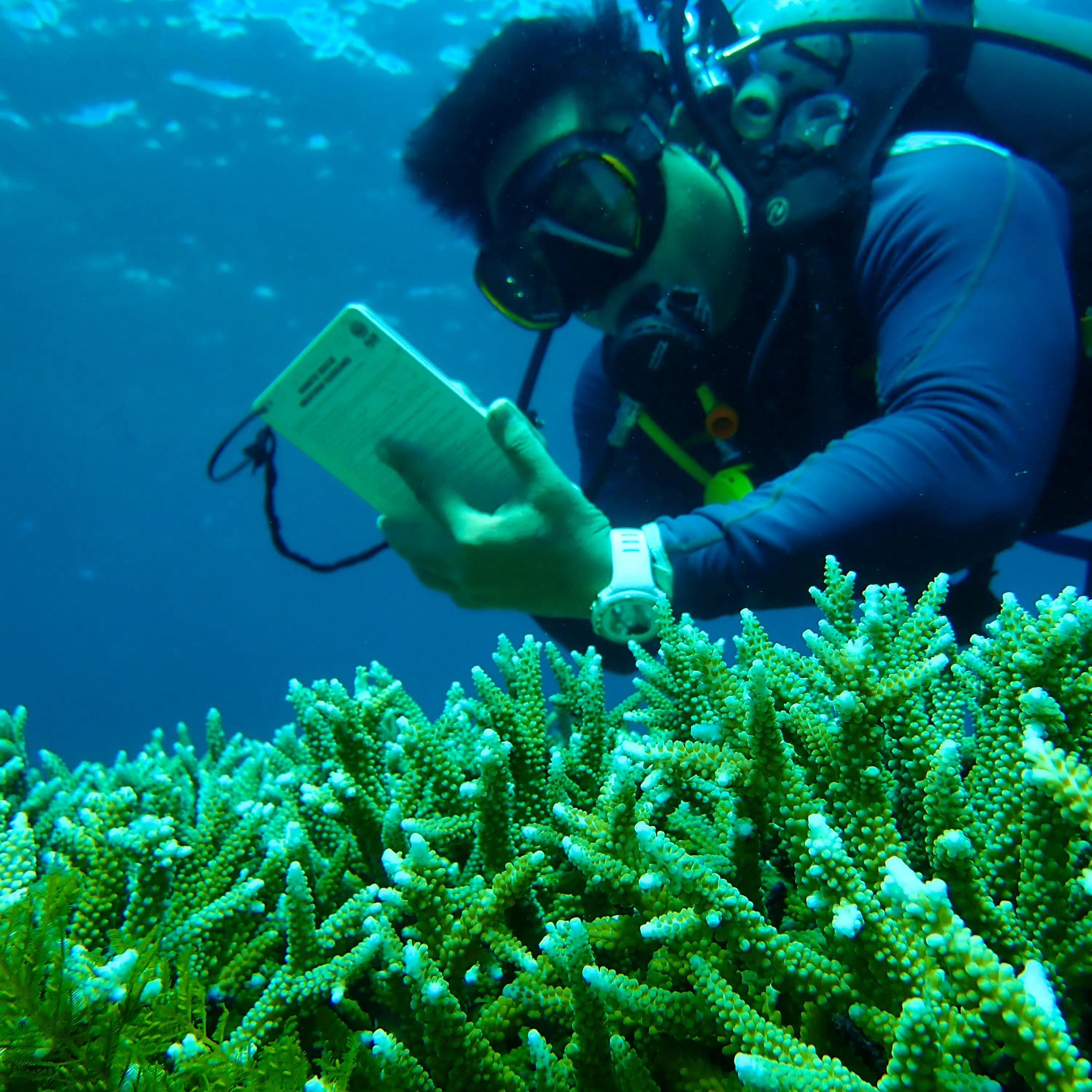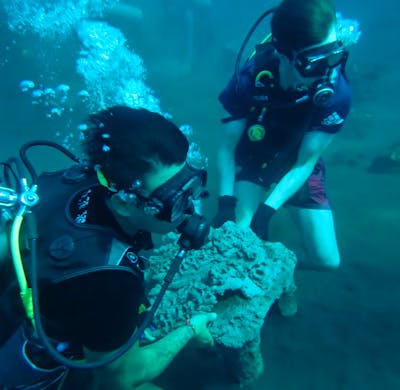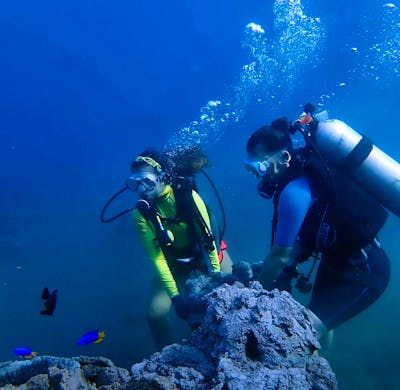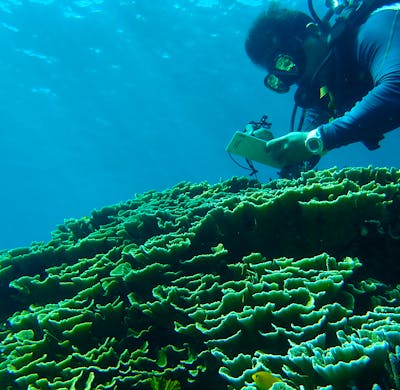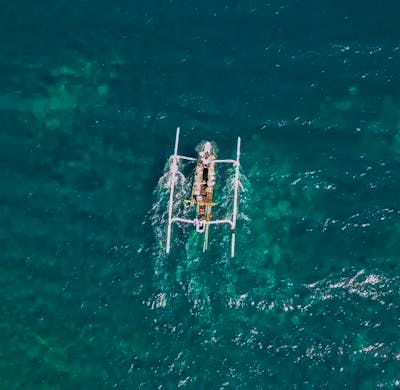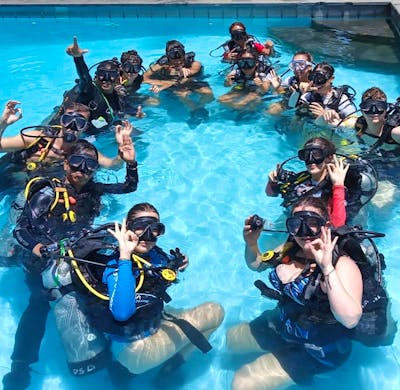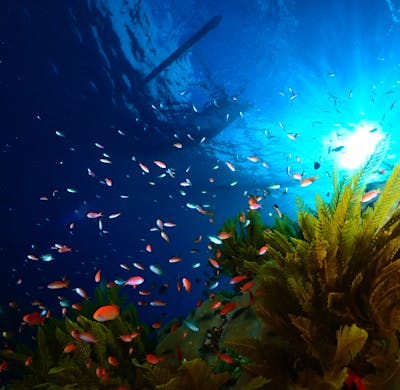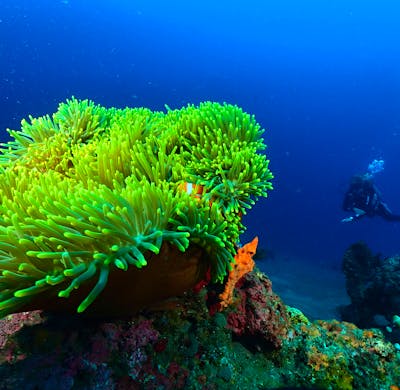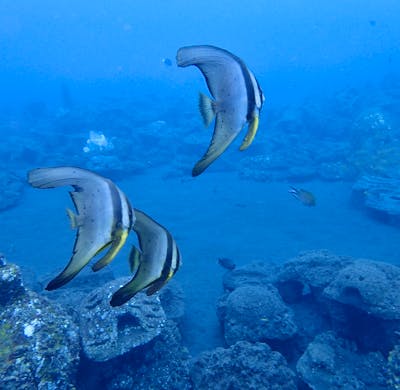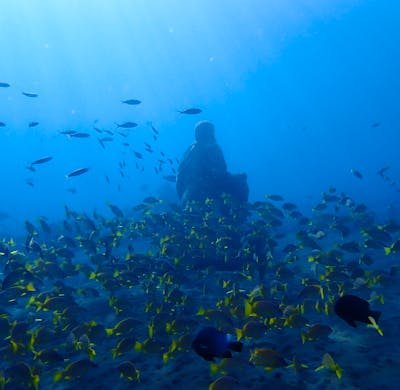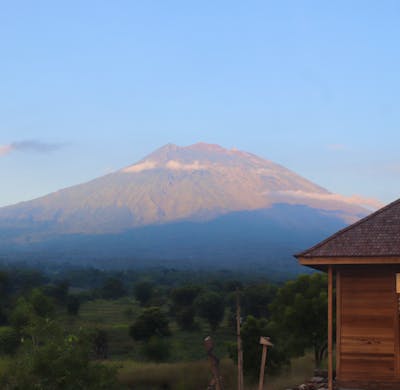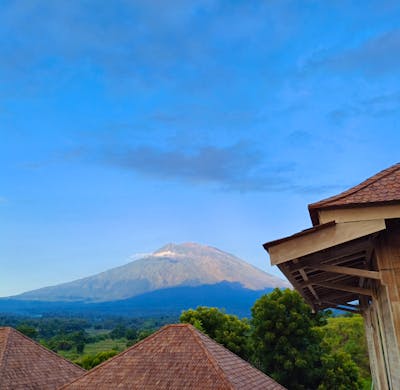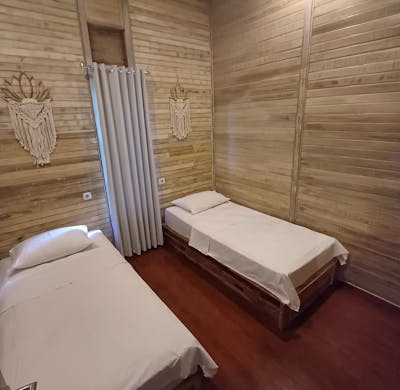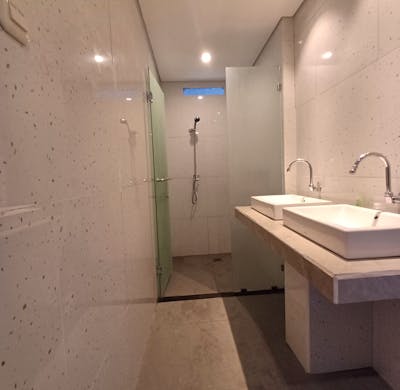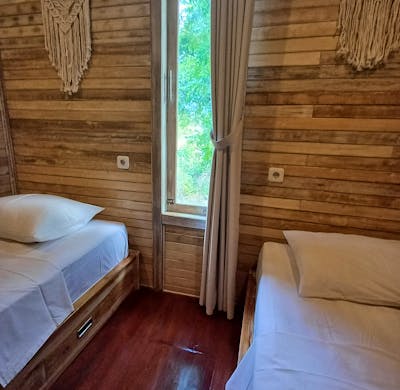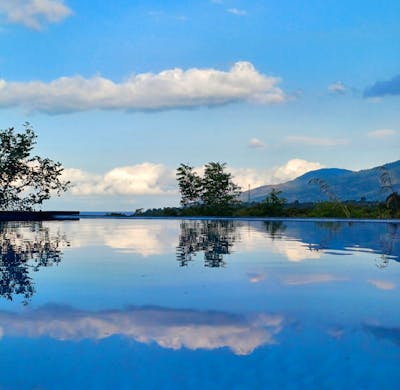As part of this coral reef restoration program we empower local communities to construct and deploy artificial reefs in four areas along the North East coast of Bali where the natural reef communities have been lost. Artificial reefs help to restore areas of exploited coral reefs by allowing coral larvae to naturally settle and grow in the sandy areas where they otherwise not be able to. These artificial reefs are also designed to incorporate complex habitats for fish and can quickly turn a barren underwater desert into a bustling reef fish community once more.
Divers are essential to our reef restoration effort as we dive twice at each of the four restoration sites once per week to deploy the artificial reefs alongside members of the local community. In the mornings, our divers in their dive buddy teams arrange the artificial reef structures into the optimum formation to maximise the habitat available for fish recruiting to the new reef. After the deployment dive we take a short surface interval before our second dive to survey the coral and fish communities developing on the artificial reef aggregations. In the afternoon, we debrief and evaluate the results of our reef monitoring, working together to develop our coral and fish ID skills as a team.
Recommendations:
- Flights - the nearest airport is Ngurah Rai International Airport (DPS) in Denpasar.
- Visa - for travellers staying in Indonesia for less than 60 days a Visa On Arrival (VOA) is
required. This can be processed upon arrival at Denpasar airport for a fee of 500,000 IDR. Go
directly to the VOA desk before immigration and apply there. Alternatively, it is now possible
to apply for an e-VOA before you arrive in Indonesia, which will save you time by allowing you
to bypass the VOA desk and go directly to immigration. Please note that if asked, you must
state that you are travelling to Indonesia strictly for tourism purposes.
For longer stays you may need a specific visa. Please contact us for more information.
- Travel/medical insurance - ensure all your planned activities are covered (specifically
recreational scuba diving).
- Vaccinations - For required vaccinations you should check with your local medical professional for
their recommended vaccines for travelling to Indonesia.
Forms
All divers will need to read, complete and sign the PADI Continuing Education form and Diver
Medical Form to ensure they are fit for diving activities. Answering "Yes" to any of the first ten
questions on the Medical form will require a doctor to complete and sign the Medical
Examiner's Evaluation form on page 3.
Recommended Packing List
- Basic first aid kit (including but not limited to: plasters, bandages, antiseptic, bite & sting
cream, rehydration sachets, vitamin C, and any other medication).
- Sun protection: hats, reef-safe mineral sunscreen, sunglasses, aftersun lotion.
- Reusable water bottle.
- Scuba mask, snorkel & fins for snorkelling. We have snorkelling equipment available here but
you will be more comfortable using your own if you have them.
- Appropriate swimwear – We recommend for you to wear a rash guard and swim shorts
whenever diving/swimming in the ocean.
- Towel. “A towel is about the most massively useful thing an interstellar hitchhiker can have.” –
The Hitchhiker’s Guide to the Galaxy.
- A small backpack for day/weekend trips.
- Smartphone – make sure it’s unlocked so you can use an Indonesian SIM card. Sign up for a
Telkomsel SIM card with your passport in the airport once you arrive.
- Laptop – Wi-Fi is available at the dive resort
- Power adaptor + extension cable
- International Drivers Licence – needed if you want to drive in Indonesia
- Bali travel guide & phrasebook
- Bank card – Online banks often offer great travel debit cards with mastercard which are
perfect for travelling and withdrawing different currencies (e.g. Monzo, or Wise). Traditional
banks have high conversion fees and often block cards if used abroad.
Please avoid bringing and using single use plastic on your trip.
Pre-departure Checklist
- Passport – Must have at least 6 months before the expiry date.
- Download all relevant travel documents (pictures of your passport, flight booking
information, international drivers licence, insurance policies, COVID vaccination certificates,
etc.) onto your phone and upload them to your cloud / google drive so you can find them if
needed.
- Download WhatsApp on your phone if you haven’t already. It’s a great way to stay in touch
with family and friends back home and is also useful for communicating with new people you
meet on your travels
PADI Certifications
We aim to dive at least 8 times each week, and so program participants will need at least a
PADI Open Water Diver certification. Those who aren’t yet certified before arriving will be
able to complete their PADI Open Water Diver course in their first three days with us. Courses
are run alongside our reef restoration program and so you’ll be diving with our PADI
instructor at our restoration sites where you will complete your diving skills. After the course,
you’ll be able to join us in our underwater restoration activities as a certified diver.
Conservation Diver Certifications
Bali Conservation Diving is a registered Conservation Diver Training Centre and all program
participants will have the opportunity to earn Conservation Diver’s base level certification
(Coral Reef Ecology & Monitoring) as part of our reef restoration program, provided they can
meet the prerequisites. Those who wish to further develop their learning and understanding
can complete the full Ecological Monitoring Program (EMP) and progress onto Conservation
Diver speciality courses listed below. All courses can either be completed alongside our coral
reef restoration program, or during your free time outside of the program.
Free Time Activities
Bali is a world renowned tropical paradise and we absolutely encourage our divers to go out
and experience all that it has to offer. Each week you have plenty of free time to explore; here
are a few suggestions of the trips and activities we can help you plan once you arrive.
- Dive resort
Our accommodation is located at our dive resort in Tulamben which is a perfect spot to relax
or socialise at the end of the day. We also have a private pool that you are welcome to use.
The nearest beach and snorkelling point is just 5 min walk away. The world famous USAT
Liberty Shipwreck dive site in Tulamben is also just 5 min away by car, or a 30 min walk.
- Short trips: you'll have the opportunity to spend your free time during diving days visiting
local sites in the Karangasem area. These short trips include, but are not limited to:
- Sunrise boat trips - these early morning trips are run by the local fishermen where you’ll
experience incredible sunrises and maybe also be able to see dolphins too
- Sunset point in Amed - the chilled atmosphere really helps to set the mood and makes for a
great evening with friends with delicious drinks and snacks for you to enjoy as you watch the
sun set behind Mt. Agung.
- Lempuyang temple - this temple is one of the most famous photo spots on the island, and for
good reason. The gates of the temple face outwards where you can catch the breath-taking
view as the sun sets behind Mt. Agung.
- Long trips: our final activities are scheduled for Monday afternoons and so you can spend
Tuesday, Wednesday and Thursday travelling around Bali and the nearby islands before
coming back on Thursday evening.
- Ubud - this can’t miss destination includes the best yoga and meditation classes around as
well as traditional fire dances, rice paddy swings, and the monkey forest.
- South Bali - the South of Bali is the most popular tourist destination in all of Indonesia and
this side of the island has something for everyone.
- Gili islands - among the top-tier of tropical paradise islands worldwide with pristine white
sand beaches, calm turquoise water, and vibrant coral reefs.
- Nusa Penida - known for its cliff top views, white sand beaches and manta rays!
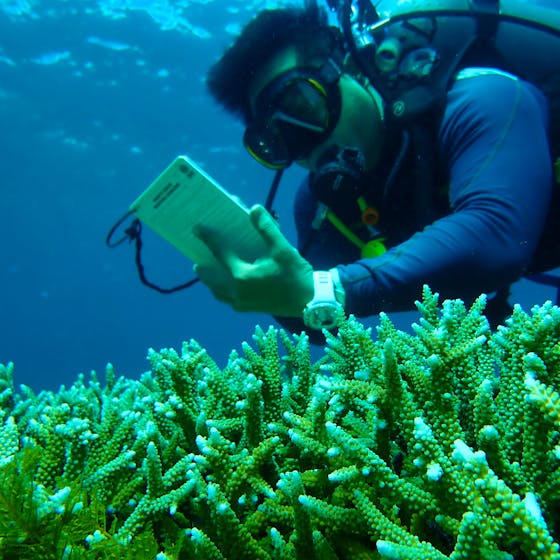
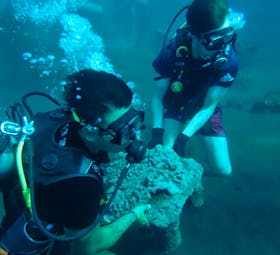
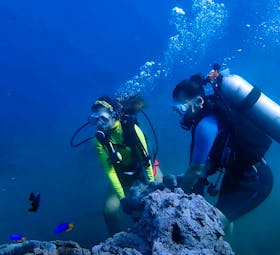
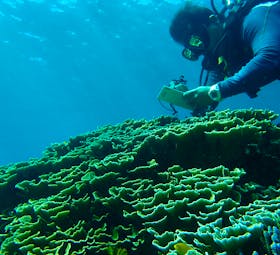
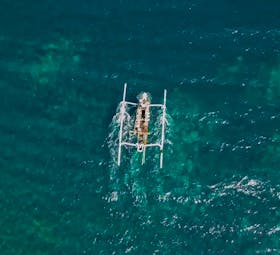
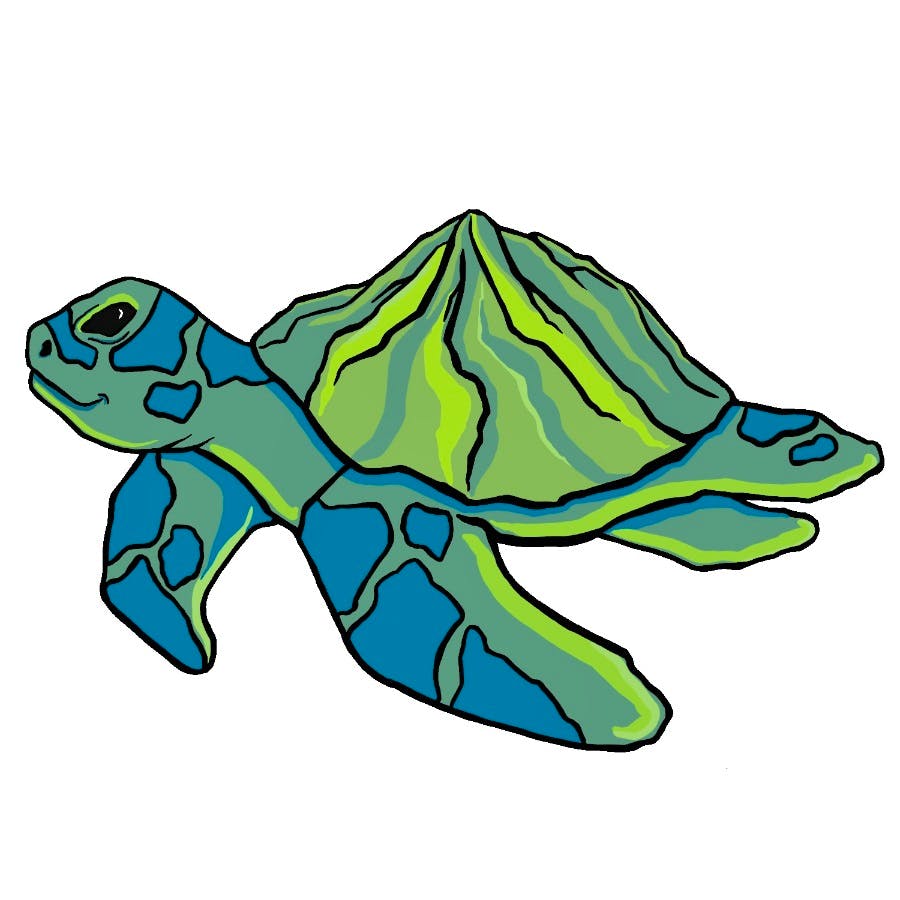
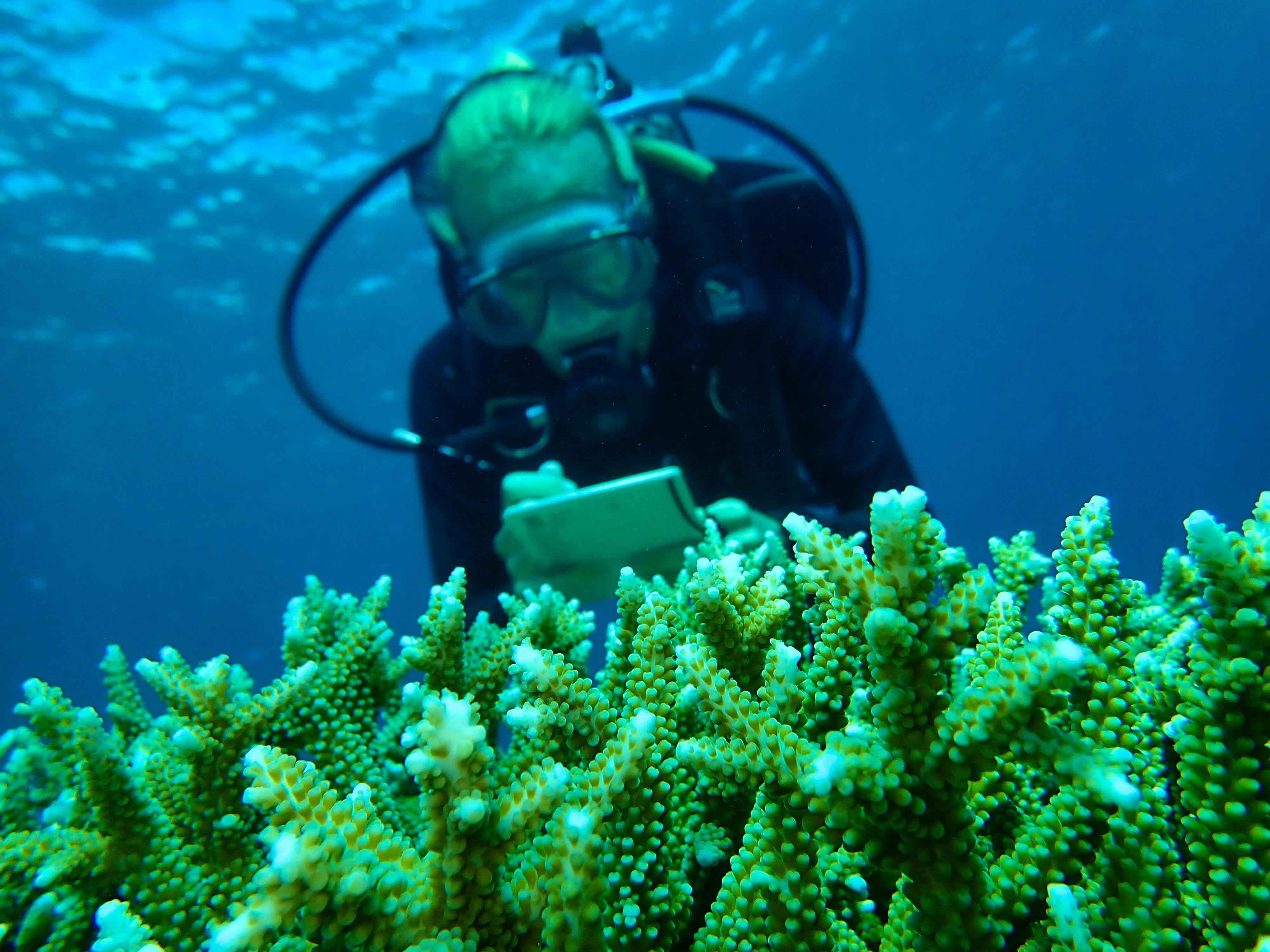
 4.9
4.9

